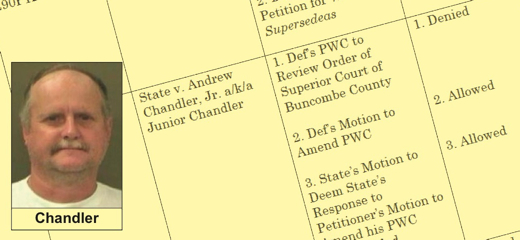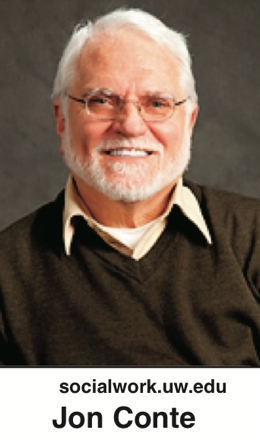Rascals case in brief
In the beginning, in 1989, more than 90 children at the Little Rascals Day Care Center in Edenton, North Carolina, accused a total of 20 adults with 429 instances of sexual abuse over a three-year period. It may have all begun with one parent’s complaint about punishment given her child.
Among the alleged perpetrators: the sheriff and mayor. But prosecutors would charge only Robin Byrum, Darlene Harris, Elizabeth “Betsy” Kelly, Robert “Bob” Kelly, Willard Scott Privott, Shelley Stone and Dawn Wilson – the Edenton 7.
Along with sodomy and beatings, allegations included a baby killed with a handgun, a child being hung upside down from a tree and being set on fire and countless other fantastic incidents involving spaceships, hot air balloons, pirate ships and trained sharks.
By the time prosecutors dropped the last charges in 1997, Little Rascals had become North Carolina’s longest and most costly criminal trial. Prosecutors kept defendants jailed in hopes at least one would turn against their supposed co-conspirators. Remarkably, none did. Another shameful record: Five defendants had to wait longer to face their accusers in court than anyone else in North Carolina history.
Between 1991 and 1997, Ofra Bikel produced three extraordinary episodes on the Little Rascals case for the PBS series “Frontline.” Although “Innocence Lost” did not deter prosecutors, it exposed their tactics and fostered nationwide skepticism and dismay.
With each passing year, the absurdity of the Little Rascals charges has become more obvious. But no admission of error has ever come from prosecutors, police, interviewers or parents. This site is devoted to the issues raised by this case.
On Facebook
Click for earlier Facebook posts archived on this site
Click to go to
Today’s random selection from the Little Rascals Day Care archives….
Click for earlier Facebook posts archived on this site
Click to go to
Today’s random selection from the Little Rascals Day Care archives….
N.C. justices to Junior Chandler: Drop dead
 Oct. 5, 2012
Oct. 5, 2012
Because today’s North Carolina Supreme Court decision on Junior Chandler’s appeal comprised three separate parts, I didn’t fully comprehend it.
“Is this good news or bad?” I emailed Mark Montgomery, Junior’s appellate lawyer.
“The worst,” he replied. “We’re out of court.”
Yes, this is the worst – the absolute, inexcusable, shameful worst.
The justices have denied Junior Chandler, probably the last still-imprisoned victim of the multiple-offender, multiple-victim ritual-abuse day-care panic, his final chance for a new trial. After 25 years behind bars – more than all the Little Rascals defendants combined! – he faces only more of the same.
If I were a lawyer, maybe I could understand how the North Carolina Supreme Court arrived at its decision.
How it was unmoved by Junior’s feeble representation early on.
How it was uninterested in the epochal progress made in limiting expert testimony.
How it was all too eager to find petty justifications for validating a prosecution rotten at the core.
But probably not.
What? A journal willing to retract?
 March 6, 2014
March 6, 2014
First of three posts
Psychiatric Times isn’t the only professional journal to avoid reexamining the “satanic ritual abuse” era.
Other examples include Nursing Research, Child Abuse & Neglect and Relational Child and Youth Care Practice. The editors of each of these journals turned down my requests to retract their articles supporting and promoting the SRA moral panic.
One editor did offer a glimmer of willingness: Jon Conte at the Journal of Interpersonal Violence.
The road to publication, however, has proved long and bumpy and ultimately – spoiler alert – a dead end.
Here are excerpts from my correspondence with Dr. Conte, who is a professor in the School of Social Work, University of Washington:
Powell (Oct. 30, 2012):
Hello Dr. Conte….
I am an independent researcher and blogger in Charlotte, North Carolina. My goal is to obtain a statement of innocence for the Edenton Seven, the wrongfully prosecuted defendants in the Little Rascals Day Care case (1989-1997).
In December 1989 the Journal of Interpersonal Violence published the article “Stress Responses of Children to Sexual Abuse and Ritualistic Abuse in Day Care Centers” by Susan J. Kelley.
In December 1990 the Journal published the article “Ritualistic Child Abuse in a Neighborhood Setting” by Barbara Snow and Teena Sorensen.
Can you tell me whether the Journal ever published a retraction for these articles? And if not, would it consider doing so now?
Conte (Oct. 30, 2012):
I do not believe JIV (ever) published a Comment on this 1989 manuscript. I would not prejudge any submission so long
as it is consistent with the overall mission and focus of the journal. A comment on a previous article, even years after publication would certainly be reviewed. Any submission must be scholarly and consistent with the purpose of knowledge development or dissemination. Your use of the term “recantation” (actually, “retraction”) would appear to suggest an advocacy purpose and that purpose alone would not be appropriate for a manuscript we would review.
Powell (Nov. 12, 2012):
I apologize for not having been clearer in my request.
What I am seeking is not a recantation but a simple, concise retraction by the editors, acknowledging that the concept accepted and promoted in these two articles – ritual abuse in day cares – was in fact entirely a product of a moral panic.
I am not an academic or professional, but I believe an examination of the literature in the intervening years would fully support such a retraction.
This passage is from the Retraction Guidelines of the Committee on Publication Ethics: “Retraction is a mechanism for correcting the literature and alerting readers to publications that contain such seriously flawed or erroneous data that their findings and conclusions cannot be relied upon. Unreliable data may result from honest error or from research misconduct.”
Does the Journal of Interpersonal Violence want to leave these articles as its last word on the era of unfounded claims of ritual abuse in day cares?
Conte (Nov. 13, 2012):
As I said before we would accept a letter to the Editor or longer manuscript. The letter would not be peer reviewed.
The longer manuscript would be.
Science and knowledge progress slowly. There are many things which are published in good faith, blindly reviewed, and found acceptable for publication. Then some years later with more research, experience, or knowledge what was once acceptable is seen in a new light. I am not saying this has taken place with the manuscript you have identified. It is not my intent to review previously published work in light of the change in times.
If you wish to write a letter for publication I am happy to work with you in that effort.
Powell (Nov. 13, 2012):
I appreciate your thoughtful response. As much I would prefer a retraction – professionally researched and peer-reviewed – I appreciate your offer to consider a letter to the editor. Here is what I’d like to say:
“In December 1989 the Journal of Interpersonal Violence published ‘Stress Responses of Children to Sexual Abuse and
Ritualistic Abuse in Day Care Centers’ by Susan J. Kelley.
“In December 1990 it published ‘Ritualistic Child Abuse in a Neighborhood Setting’ by Barbara Snow and Teena
Sorensen.
“Both these articles endorsed and promoted a concept – satanic (or sadistic) ritual abuse in day cares – that subsequent research has proven to be entirely false. Today no respected social scientist will argue otherwise.
“The Little Rascals and McMartin cases were but two manifestations of this moral panic of the 1980s and early 1990s. Less publicized prosecutions occurred across North America and as far away as New Zealand and Germany.
“Untold harm was done to defendants, families and child-witnesses.
“The Journal of Interpersonal Violence should not allow these articles to stand as its last word on claims of day-care ritual abuse.”
Conte (Jan. 18, 2013):
I would suggest you consider several additional points: 1) you cite research which proves ritual abuse “false.” I don’t think you need to do a comprehensive research review, but since JIV is a scholarly journal, you should cite some of the research you are referring to. I am not sure that this research “proves” that RA does not exist but rather raises questions.
You might also make reference (if true) that no law enforcement investigation has every uncovered evidence that such “cults” exist. You also need to specify the harm that you feel these articles did. For example, does the term RA in the title imply belief that RA exists? I don’t think you have to prove some harm, but be specific in what you believe the harm is.
Also, and perhaps more importantly, if there are issues within the articles (i.e., not just the title) then describe what you see as the conceptual, methodological, etc., problems.
We are probably going to invite the authors to respond, and if they choose to do so I will share their responses
before we publish your letter or their responses.
Powell (Jan. 25, 2013):
I appreciate your guidelines and hope to produce something that is not only publishable but also contributes to discussion of this issue.
Conte (Sept. 4, 2013):
I am happy to work with you….
Next: My second attempt to make my case in the Journal of Interpersonal Violence.
‘Right much training but nothing like she needed’
May 8, 2013
“We just had all kinds of rumors. Everybody in town was involved in it, with this one pointing fingers, that one pointing fingers. My telephone was ringing right steady….
“We really didn’t know what we had. I had a police officer who works as a secretary (Brenda Toppin) who deals with this type case, and she had right much training but nothing like she needed. So we had problems right from the start.”
– Edenton Police Chief Charles Harvey Williams, recalling for a North Carolina House committee how his 15-person department struggled to sort out allegations about the Little Rascals Day Care center (April 23, 1991)
Toppin has been variously described as a secretary and a dispatcher in Edenton’s 15-person police department – she may well have been both. Regardless, she seemed utterly unaware how far in over her head she was interviewing children about supposed ritual sex abuse.
‘Will Edenton be able to heal from this?’
 Aug. 7, 2013
Aug. 7, 2013
“After (the first episode of “Innocence Lost” aired in 1991), letters and phone calls poured into the mayor’s office.
“ ‘Dear Mayor: Thank God I don’t live in Edenton. It’s full of witches…..’
“ ‘Dear Mayor: I suppose since lynching Negroes is verboten, the next best thing is for Southerners to cannibalize each other….’
“John Dowd, Edenton’s mayor at the time, is trying to correct some of the damage done to the town’s reputation….
“Many reporters have wanted to know: ‘Will Edenton be able to heal from this?’ The question is a little too touchy-feely for some residents, too intimate and much too insincere. Dowd replies, ‘Hell, we’ve recovered from the Civil War, from World War II.’ Then, dryly: ‘Yeah, I think we’ll recover from this.’ ”
– From “Little Town of Horrors” by Kathy Dobie in McCall’s (June 1992)
The Civil War, World War II and the Little Rascals Day Care case? The mayor’s resolve was apparent, if not his logic – but that was true for the whole case, wasn’t it?











0 CommentsComment on Facebook